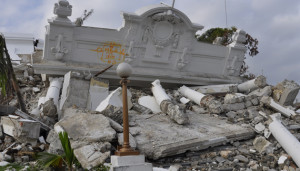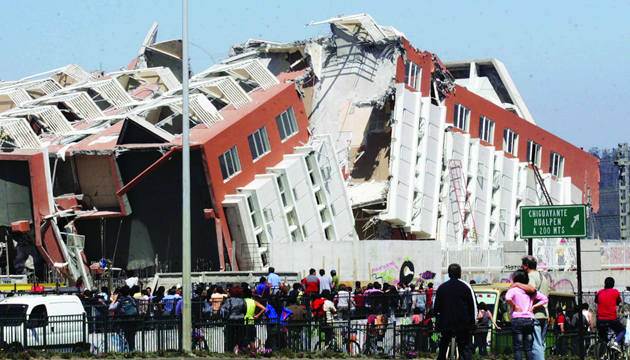Two natural disasters reveal the difference of cultural and national expressions of quality in very profound ways.
Quality & Economics
The question of quality runs far deeper than business. When quality fails at the societal level, we fail each other. Then the real danger is that we fail to govern efficiently and fairly.
Earthquakes in Haiti and Chile measured 7.0 and 8.8 respectively on the moment magnitude scale. The difference implies that the Chilean earthquake was 500 times stronger than the Haiti earthquake.
While the devastation in both countries was extreme, structural damage and loss of life were far less in Chile than in Haiti. The difference in devastation is largely attributed to the difference in building standards.
The impact of one nation’s choice to pursue or not pursue quality impacts not only that nation but almost every other nation across the globe.
Very few structures collapsed in Chile and the number of deaths was far less than in Haiti even though the Chilean earthquake was 500 times stronger. In other words, in the case of Haiti, lack of quality can be directly attributable to the damage caused there, while a commitment to quality in Chile minimized what could have been an even greater loss of live than seen in Haiti.
In Haiti, the death toll exceeded 200,000 and the number of buildings destroyed or severely damaged exceeded 250,000 homes and 30,000 commercial structures. In contrast, the death toll in Chile was less than 2,000 and very few structures were totally destroyed.
While the differences in building standards can be rationalized by noting the differences in economic health with Haiti being one the poorest nations in the world, the cost of poor quality proved to be enormous in Haiti.
 Perhaps one of the most critical applications of quality is how it can have an impact on nations and individuals. The impact of one nation’s choice to pursue or not pursue quality impacts not only that nation but almost every other nation across the globe. These decisions impact how dollars are spent and what they are spent on. While it’s often a difficult decision, especially in third world countries, political leaders who choose to ignore quality risk paying a heavy price.
Perhaps one of the most critical applications of quality is how it can have an impact on nations and individuals. The impact of one nation’s choice to pursue or not pursue quality impacts not only that nation but almost every other nation across the globe. These decisions impact how dollars are spent and what they are spent on. While it’s often a difficult decision, especially in third world countries, political leaders who choose to ignore quality risk paying a heavy price.
Natural disasters cannot always be predicted, but you can minimize damage to people and places by integrating quality measures into infrastructures and policies. Whether it is a hurricane, flood, tornado, pollution, or fire, the impact of the economics of quality for nations and their environmental resources can be devastating.



















